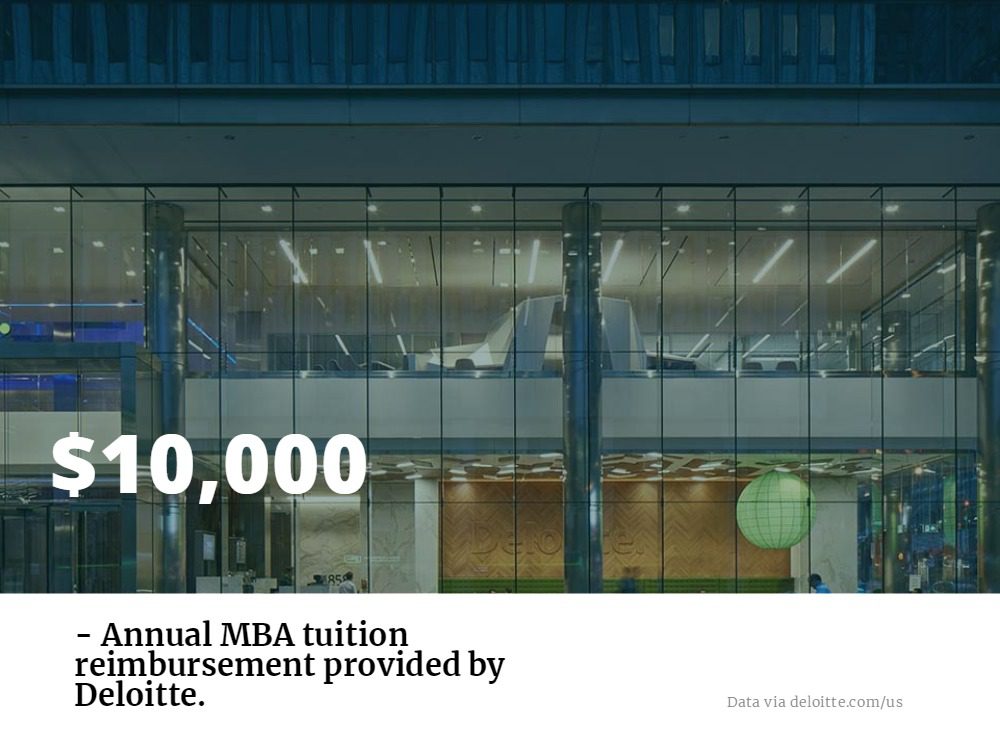What They’re Saying: Zuckerberg Testifies Amid Facebook Scandal

Earlier this week, ultra-rich and seemingly malnourished social media monolith Mark Zuckerberg testified before a continually befuddled U.S. Congress about the Facebook scandal regarding the private information of its unwary users.
However, despite getting turned into a plethora of memes during his time in Washington DC, it’s patently unclear what, if anything, will come as a result of the testimony, in which Zuckerberg said that data was even coming from users who didn’t actually have their own Facebook accounts.
Zuckerberg’s appearance before Congress came within the short window of time in which Cambridge Analytica—the other company embroiled in ongoing Facebook scandal—watched as its CEO Alexander Nix stepped down from his role. Check out how business schools are reacting to the recent news below.
In the first of two Congressional hearings this week, @finkd made no promises to support new legislation or to change how @Facebook does business, despite recent data breaches and controversy. https://t.co/72Xuv4DUge @ReutersBiz.
— MIT Sloan Experts (@mitsloanexperts) April 12, 2018
When I opened my file, it was like opening Pandora’s box. (Via @nytimes) https://t.co/VQl9Diu3pM
— MIT Tech Review (@techreview) April 12, 2018
Marketing and Strategy Professor Tim Derdenger talks with @Marketplace @Erika_Beras about the fallout from Facebook’s mishandling of user data and impact on other advertising revenue business models, like Google #TepperFaculty https://t.co/C30HJNX69T pic.twitter.com/74lOiPxOWH
— Tepper CMU (@teppercmu) April 11, 2018
.@profgalloway discusses the controversy surrounding #Facebook via @bsurveillance. Listen here: https://t.co/Yy9i9NQNKv
— NYU Stern (@NYUStern) April 11, 2018
Why was protecting data not a top priority at Facebook before the Cambridge Analytica scandal blew up? “This probably reflects on managerial experience” suggests @Wharton’s David Hsu https://t.co/vBXafqKdGW
— Knowledge@Wharton (@whartonknows) April 7, 2018
How to Get Your Employer to Pay For Your MBA

Earning an MBA holds tons of value in the business world—an advanced business degree can open doors that may otherwise have been closed, and boasts a high return on investment thanks to the top-level salaries that MBAs command.
Graduate school—and all of the coursework that comes with it—can be an intimidating challenge, but paying for it doesn’t have to be. Aside from scholarship, grant and fellowship opportunities at business schools across the country, more and more companies are placing a higher importance on tuition reimbursement programs, and expanding opportunities for paid MBA tuition reimbursement.
How can you get your employer to pay for your MBA studies? Let’s take a closer look.
Getting Your Employer to Pay For Your MBA
First thing’s first: You need to find out if your current employer offers tuition reimbursement to its employees. The terms of reimbursement vary depending on the company, with some corporations not offering any sort of program at all. Those that do offer some sort of compensation may do so on a course-by-course basis, or as a lump-sum reimbursement package for coursework in relevant degree plans.
“Organizations typically support MBA pursuits for two reasons,” J. Todd Rhoad, managing director of Atlanta’s BT Consulting, told USA Today. “Employee development and succession planning. In the first case, companies support the cost of MBA programs as part of their commitment to employee training and development.”
If you want to convince your employer that your education is worth investing in, you’ll need to show that earning an MBA will further your business acumen and understanding of your industry, and ultimately help your company reap those benefits.
“Usually, an employee has to already been delivering great results within the company,” Roderick Lewis, international relations director at the ISCTE Business School, University Institute of Lisbon, told Business Insider.
“If you haven’t already convinced your company, then asking them to [sponsor your education] becomes really difficult,” Lewis says.
USA Today also outlined a few checkboxes to hit when determining how valuable earning an MBA would be for your organization:
- Do current members of middle or upper management hold advanced business degrees?
- Does your company have the available revenue to invest in employee education?
- Would someone with the type of advanced training you seek bring clear advantages to the company?
If those point hold true in your situation, then start researching which programs specialize in providing the skills that your company needs. Keep in mind: You do not have to limit yourself to business schools in your metro thanks to popularity of Online MBA programs. There may have once been a stigma against online programs, but the of the matter fact is that many of the top online MBAs on U.S. News & World Report’s annual rankings also rank highly on the publication’s top campus-based graduate business programs list.
Some of these schools include:
- University of North Carolina – Chapel Hill (Kenan-Flagler)
- Indiana University – Bloomington (Kelley)
- Temple University (Fox)
- Arizona State University (Carey)
- University of Florida (Hough)
- Carnegie Mellon University (Tepper)
- University of Texas – Dallas
Once you’ve found the right program, you’ll want to craft a brief proposal for your employer. In it, you’ll want to mention how you fit the company’s tuition reimbursement policy, and list the advantages that continuing your education can bring you and your company. Don’t shy away from providing data on how much assistance you may need and how this investment will pay off for everyone, while also ensuring your employer that you’ll remain committed to the company during your degree program, or won’t jump ship after earning your degree.
“A proposal should address the benefit to the company,” Rhoad says, “(including) areas where the company could improve and how you will help them, a review of the courses to be taken and how they will provide knowledge that can help improve the company’s performance.”
Companies That Provide MBA Tuition Reimbursement
Investopedia recently compiled a list of companies have stated that they place a high value on their tuition assistance benefits, and provide tuition reimbursement for the educational costs of an MBA.
According to Investopedia, consulting companies lead the market in tuition reimbursement programs for MBA courses. These firms also pay the highest salaries for MBA alumni. Deloitte has the most robust tuition reimbursement plan, providing employees with up to $10,000 per year in MBA reimbursements. The firm requires two years of work with the company and a commitment to work for the company after graduation in order to receive the tuition assistance benefit.

Financial institutions and banks also place a high value on employees with MBAs, and provide tuition assistance. One example is Bank of America, which provides employees with annual tuition assistance of up to $5,250 for advanced degree coursework. Wells Fargo also has a track record of paying for MBAs, doling out up to $5,000 annually for tuition expenses.
The booming tech sector is also hiring MBAs left and right, with some firms developing their MBA talent in house by offering to pay MBA tuition expenses. Apple tops the list of tech companies offering tuition assistance, providing reimbursement of up to $5,000 annually. MBA degrees are even more coveted in the the specialty defense technology sector, as Raytheon, one of the top defense technology companies in the world, offering to pay up to 100 percent of employees’ college tuition for graduate school.
Other leading companies offering tuition reimbursement to employees include:
- Chevron: A market leader in the energy sector, Chevron offers offers tuition reimbursement of up to 75 percent for its employees.
Ford: Ford’s education tuition assistance program provides employees with tuition reimbursement of up to $5,000 annually for an MBA. - Procter & Gamble: This firm has one of the leading tuition reimbursement benefits in the consumer goods industry, providing reimbursement for up to 80 percent of educational costs with a limit at $40,000.
- AT&T: This telecom giant provides employees with up to $5,250 annually for tuition assistance, for a maximum reimbursement of up to $25,000 for graduate school courses.
Comparing The U.S. News Full-Time and Online MBA Rankings

When it comes to business school rankings, U.S. News & World Report issues one of the most comprehensive annual lists. The annual rankings includes separate lists for the “Best Business Schools” and the “Best Online MBA Programs,” but deciding which format is right for you can still be tricky. Continue reading…
Admissions Tip: Deadlines

Anyone who’s familiar with the MBA application process knows that August moves forward at an accelerated pace, and come September, entire weeks seem to disappear. To help this year’s Round One applicants avoid the classic time crunch, today’s blog post offers some basic advice on how to approach the Round One MBA deadlines at a reasonable pace.
Let’s start by taking a quick look at a handful of the earliest deadlines for the top MBA programs:
September 6: Harvard Business School
September 8: Cambridge / Judge
September 12: Duke / Fuqua
September 13: Yale SOM
September 15: London Business School
September 19: Stanford GSB, Penn / Wharton, Notre Dame / Mendoza (Early Deadline)
September 20: Northwestern / Kellogg, INSEAD
September 21: Chicago / Booth, Berkeley / Haas
September 25: MIT Sloan
September 29: Oxford / Saïd
For a full list of deadlines, check out Clear Admit’s post here.
Though some schools have yet to announce their deadlines (such as UMD Smith and UCI Merage, one can still get a sense of the lineup of R1 deadlines. Here are a few tips to keep in mind when creating your personal timeline.
Plan to be busy in August.
Yes, it can be tempting to work on one’s tan instead of one’s essays. However, many MBA applicants squander the month of August only to wake up in September and realize that they cannot make their target deadlines. If you are not bogged down by professional obligations in August, this makes for a great opportunity to devote time to working on your MBA applications in the evenings. The last weeks of summer can easily be split between résumé drafting, essay writing, recommendation coaching, GMAT prep, school research, and more.
Think carefully about the timing of the R1 MBA deadlines.
Looking at the deadlines above, it becomes clear that some deadlines may be easier to make than others. A candidate applying to Haas and London Business School could have a leisurely October when compared to someone targeting Haas, London Business School and NYU Stern (Oct. 15, 2017 Round 1 Deadline). Assuming about three weeks of research and writing for each school’s application, take a look at the deadlines and count backwards to determine a start date for each. It is entirely possible to meet back-to-back deadlines, such as Tepper and Darden, but doing so requires a well-planned schedule and consistent progress.
Consider taking some time off from work.
We realize that many MBA applicants work 70 hours per week and haven’t had a day off in months. For such applicants, a day or two out of the office can really do wonders for focus and organization. Applying to business school is a serious undertaking, and in the long term you won’t regret having given yourself enough time to prepare strong applications. Many successful candidates take a week off in early September to make the final push. It’s not a glamorous way to spend your vacation time, but an offer to attend a leading MBA program can make the sacrifice well worth it.
Get your recommenders on board early.
While some of the schools have not yet made their online applications and recommendation forms available, it’s a good idea to engage your recommenders early and inform them about the process and your timeline. Sit down with each recommender, perhaps over lunch or coffee. Present them with an outline of the deadlines and the process. It’s then a wise idea to meet again once the forms are available, and by that time many applicants are in a position to share their background materials (a résumé, career goals essays, etc.) to help their recommenders understand—and support—their message.
Happy planning!
This article has been edited and republished with permissions from Clear Admit.
